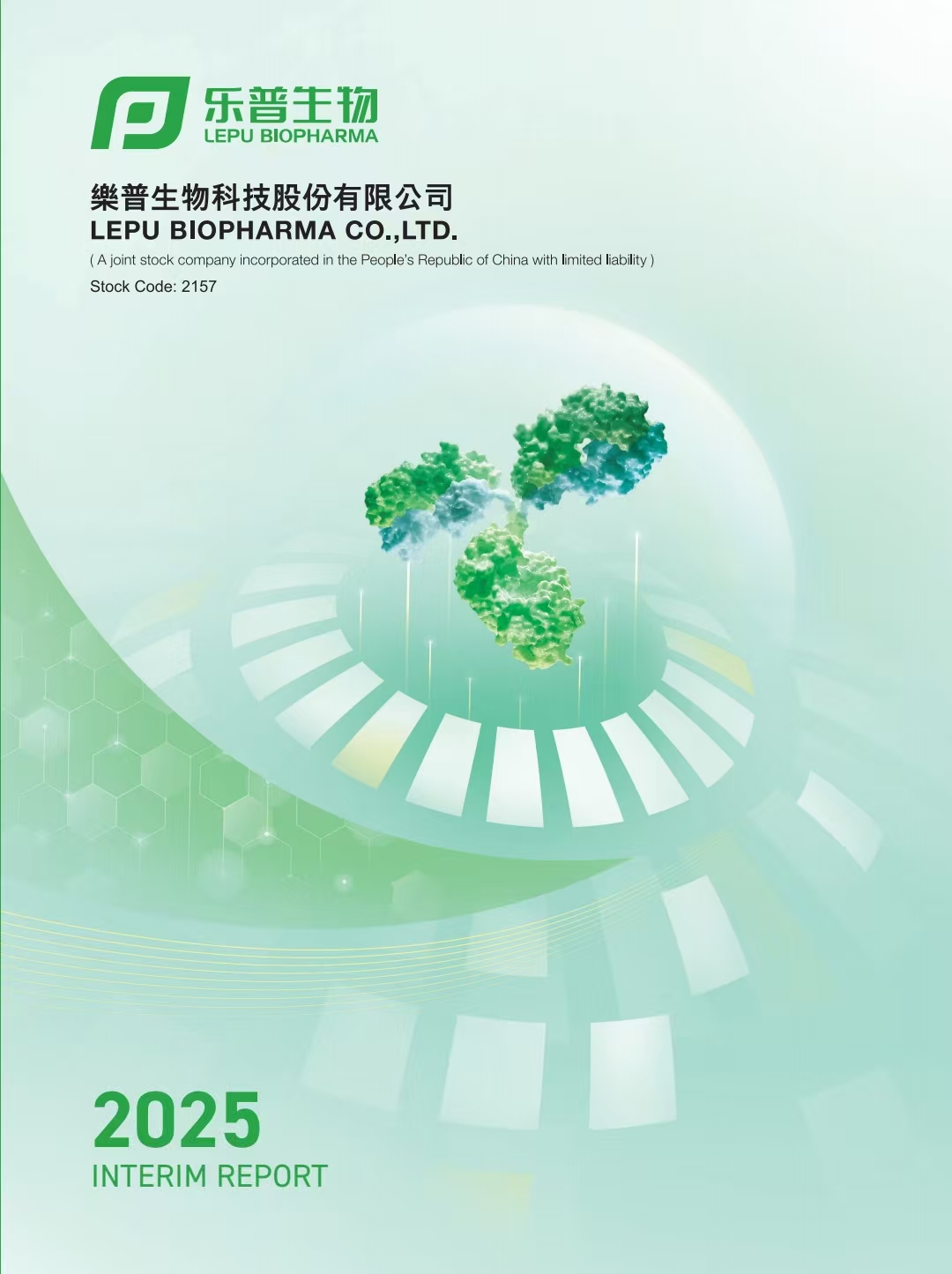Introduction:
The incidence of microsatellite instability-high (MSI-H) or mismatch repair deficiency (dMMR) in patients with solid tumors is approximately 10%-22% [1], with a higher incidence for colorectal cancer, gastric cancer, and endometrial carcinoma. It also occurs in other solid tumors such as breast cancer and liver cancer. For such patients, the benefits from previous chemotherapy regimens are limited; therefore the exploration of new regimens such as immunotherapy has become the focus of academic attention in recent years. On July 22, 2022, the PD-1 inhibitor pucotenlimab (HX008, trade name: Puyouheng™) of Lepu Biopharma Co., Ltd. was officially approved for marketing by the National Medical Products Administration of China (NMPA) for previously treated patients with unresectable or metastatic MSI-H/dMMR advanced solid tumors. The marketing of this indication is based on the excellent data from the “Phase II clinical study of pucotenlimab used in the second-line therapy and beyond for MSI-H/dMMR advanced solid tumors” led by Professor Huang Jing from the Cancer Hospital Chinese Academy of Medical Sciences.
At the blockbusting moment for the marketing of the new drug, this newspaper conducted a special interview with Professor Huang Jing to comment on the efficacy and safety of pucotenlimab, analyze the significance of its marketing, share clinical medication experiences, and guide its future development directions. The following is a summary of the interview for readers' reference.

Professor Huang Jing
Doctor of Medicine, American National Cancer Institute (NCI) Post-Doctoral Fellow, Doctoral Supervisor
Deputy Director of the Department of Internal Medicine, Cancer Hospital Chinese Academy of Medical Sciences
Vice Chairman of the Colorectal Cancer Professional Committee, Beijing Association of Oncology
Vice Chairman of the Oncology Rehabilitation Branch of China Society of Gerontology and Geriatrics (CSGOR)
Director of Chinese Society of Clinical Oncology (CSCO)
Vice Chairman and Secretary General of CSCO Esophageal Cancer Professional Committee
Vice Chairman of CSCO Cardio-Oncology Professional Committee
Member of the Standing Committee of the Esophageal Cancer Professional Committee, China Anti-Cancer Association
Member of the Standing Committee of the Colorectal Cancer Professional Committee , China Medical Doctor Association
Vice Chairman of the Internal Medicine Treatment Committee of the Colorectal Cancer Professional Committee, China Medical Doctor Association
Director of Beijing Xisike Clinical Oncology Research Foundation
Editorial Board Member of the Chinese Journal of Colorectal Diseases (Electronic Edition)
Editorial Board Member of the Oncology Progress
1. In July 2022, pucotenlimab was officially approved by the NMPA for the indication of previously treated MSI-H/dMMR solid tumors. As the leading PI of its pivotal study, you have participated in and witnessed the project from study start-up to approval. Could you please share with us its marketing process?
Professor Huang Jing: For patients with MSI-H/dMMR solid tumors, conventional chemotherapy has limited efficacy and is accompanied by obvious chemotherapy-related toxic and side reactions. Whereas, foreign clinical application data of PD-1 inhibitors show that patients with MSI-H/dMMR solid tumor are a key beneficiary population of immune checkpoint inhibitors.
Before the study, there was no domestic data on the use of PD-1 inhibitors in these patients. As of December 4, 2021, 100 patients with histologically confirmed advanced solid tumors that are identified to have MSI-H/dMMR through testing by the central laboratory were enrolled in the study. They were given 200 mg pucotenlimab by intravenous drip every 3 weeks. The two-year study with nearly two years of follow-up was completed by the sponsor LEPU BIOPHARMA and 27 Chinese centers jointly, and the efficacy and safety data of pucotenlimab in patients with MSI-H/dMMR advanced solid tumors were finally obtained. We derived great satisfaction from the fact that the drug was approved by the NMPA for the indication of previously treated MSI-H/dMMR solid tumors based on the excellent data from the study.
2. The approval is based on Phase II clinical study of pucotenlimab used in the second-line therapy and beyond for MSI-H/dMMR advanced solid tumors. Relevant data were also published at the 2021 ASCO annual meeting, indicating satisfactory anti-tumor efficacy and safety of pucotenlimab. What is your comment on the achievements of the study?
Professor Huang Jing: The primary endpoint of this study is ORR, and the secondary endpoints are PFS and OS. The results of the study showed that the ORR of pucotenlimab reached 49% in the ITT population, and it reached 50% in patients with colorectal cancers (CRC) who have failed triplet therapy. The median follow-up duration was 23.5 months. And the median PFS and OS have not been reached so far, indicating that more than half of the patients have no disease progression (the PFS event has not occurred), and the OS event has not yet occurred, which is an advantage in terms of efficacy. Compared with other domestic and foreign PD-1/PD-L1 drugs for the second-line therapy and beyond in patients with MSI-H/dMMR advanced solid tumors, the numerical efficacy of pucotenlimab is not inferior to the data of world-class PD-1/ PD-L1 monoclonal antibody in both the enrolled intention-to-treat population (ITT population) and the colorectal cancer (CRC) subgroup indicating that the effectiveness of pucotenlimab treatment is more advantages.
In terms of safety, compared with other PD-1 inhibitors targeting MSI-H/dMMR solid tumors, no new safety signal of pucotenlimab is observed, and the overall tolerability and safety of patients are good.
3. During the study process, how did you feel about the medication of pucotenlimab? Could you share with us the most impressive cases for you?
Professor Huang Jing: During the study process, I had deep feelings about the efficacy of pucotenlimab. For a patient who failed conventional treatment and developed distant metastasis after colorectal cancer surgery, the enrollment for pucotenlimab treatment happened when the Spring Festival was coming. Therefore, we actively contact the patient to come to the hospital for a visit in advance after 1 pucotenlimab monotherapy, considering the inconvenience of consultation during the Spring Festival holiday. After examination, it was found that the patient developed immune-associated myocarditis, which was an adverse event of low overall incidence. The treatment of pucotenlimab was therefore stopped and replaced with active symptomatic treatment, enabling the patient to smooth out the effects of the adverse event steadily. To our surprise, this patient achieved PR after the treatment of pucotenlimab without subsequent immune-related therapy or chemotherapy. It has been more than two years now, and the patient is still in long-term sustained response. We have used a variety of immune checkpoint inhibitors clinically, but this case has refreshed our understanding of the efficacy of immunotherapy, and it also makes us understand a lot profoundly. It is the common desire for pharmaceutical enterprises and investigators to seize every possibility of bringing new life to patients with effective drugs while discovering and handling adverse events promptly and administering drugs safely and effectively.
4. In the era of tumor immunotherapy, what do you think is the significance of the approval of pucotenlimab? And what impact does it have on the clinical practice?
Professor Huang Jing: The successful approval of the indication of pucotenlimab for the treatment of MSI-H/dMMR solid tumors means that there is a novel PD-1 inhibitor as a clinical option and its efficacy is not inferior to international first-class drugs of the same class of PD-1 monoclonal antibody, making us believe that it is a good choice for the treatment of solid tumors. What is more worth looking forward to is that except for the MSI-H/dMMR population, clinical studies of pucotenlimab in treatment of melanoma, gastric cancer, lung cancer and other tumor types are also developing. Moreover, it is reported that its indication for the treatment of melanoma will also be approved in the near future. I am looking forward to the good news from these new explorations as soon as possible.
5. Could you please summarize the highlights of the study of pucotenlimab, its application prospects and future outlook?
Professor Huang Jing: Overall, the clinical study of pucotenlimab has two outstanding highlights. One is that the primary study endpoint of objective response rate (ORR) is fantastic. And the other is that the secondary endpoints of PFS and OS have not yet been reached, indicating an excellent long-term efficacy. Therefore, the future of pucotenlimab is promising.
In terms of the primary study endpoint, the ORR of pucotenlimab in the ITT population, the population with evaluable efficacy and CRC patients who have failed triple therapy reached 49%, 52.7%, and 50% respectively. As mentioned above, compared with data of treatment for this population with approved domestic and foreign immune checkpoint inhibitors, we see the definite efficacy of pucotenlimab and its ORR is favorable, although no head-to-head comparative trial being conducted.
In terms of secondary study endpoints, the PFS and OS data are still not complete at a median follow-up of 23.5 months, indicating that more than half of the patients are still in a progression-free and survival state. Thus, the final data is worth looking forward to, which is another highlight of the study.In addition, no new safety signal is observed.
In conclusion, pucotenlimab is a novel PD-1 inhibitor with definite efficacy and satisfactory safety. We hope that the exploration of its combination with targeted therapy and chemotherapy regimens in a wider population in the future will create more new and excellent data, ultimately bringing benefits to more patients.
CMT (China Medical Tribune)
References
[1] Lorenz i M, et al. Epidemiology of Microsatellite Instability High (MSI-H) and Deficient Mismatch Repair (dMMR) in Solid Tumors: A Structured Literature Review. Journal of Oncology, 2020, 2020(22):1-17.











